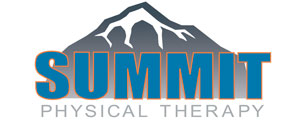Spinal Stenosis
What is Spinal Stenosis?
Spinal Stenosis is a narrowing of one or more areas in your spine, most often in your neck or lower back. Spinal Stenosis can cause varying symptoms including but not limited to: pain or numbness in your legs, back, neck, shoulder or arms; limb weakness and incoordination; change of sensation in your arms/legs and problems with bladder or bowel function.
Common Causes of Spinal Stenosis
- Osteoarthritis
- Achondroplasia (Dwarfism)
- Disc Degeneration
- Spinal Tumors
- Thickened Ligaments
- Spinal Injuries
- Paget’s disease of the bone
How We Treat Spinal Stenosis
If it is determined that physical therapy is a viable conservative treatment or post-operative option, a patient could expect his/her treatment to include:
- Core and spinal stability exercises
- Strength training
- Flexibility of the spine and extremities
- Balance training
- Home exercise program
- Cardiovascular exercise to increase home and community activities
- Pain control through modalities such as:
- Ultrasound
- Electrical stimulation
- Heat & Ice
- Massage
- Spinal traction
*Services are not available at all locations. Call or click the location page near you for that center’s services.
What to Expect
Every patient has a unique health history, diagnosis and personal goals. When you come for your first appointment, we will create a personalized treatment plan for you.
We work with most major insurance providers and do our best to help keep the paperwork pain-free. If you’d like to confirm your insurance coverage, please let us know and we can verify when you schedule. If your insurance provider requires a co-pay, we will ask for this payment at each visit. We accept payments by cash, check or credit card.
When to Arrive
On average, a patient’s first visit lasts about an hour. We typically ask patients to arrive 15 minutes early to sign-in, complete paperwork and/or change clothes.
What to Bring
On your first visit, you’ll need to bring your physician referral or prescription (if needed), your insurance card, your primary registration forms, your ID or driver’s license and your co-payment (as applicable). If desired, you may bring a change of clothing.
How it Works
During your first visit, your physical therapist will do an initial evaluation and discuss your plan of care. The therapist uses this information to set goals for your continued treatment. Physical therapy goals may include improved movement, strength, endurance and flexibility, as well as decreased pain. Your subsequent visits will focus on treatment that is based on your diagnosis and individualized goals.
